JODY’S MEMORIES OF MITCH! THE HISTORY, MEN & MACHINES
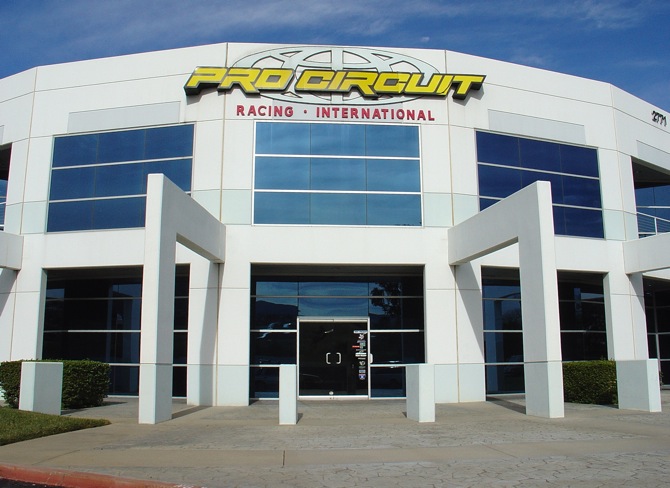
By Jody Weisel
To the casual motocross fan, Pro Circuit may seem like the schoolyard bully, a mega-power that wields its might at will and a classic case of the factory “haves” over the privateer “have-nots.” Nothing could be further from the truth. They may well be the winningest team in the sport…and even when they have bad seasons, like during the 2015 Supercross season, it’s normally only because their riders got hurt, but instead of a corporate powerhouse, they are really a bootstrap team that worked its way up from nothing to the top of the heap. Their success should be celebrated by every struggling privateer rider, start-up team or race shop.
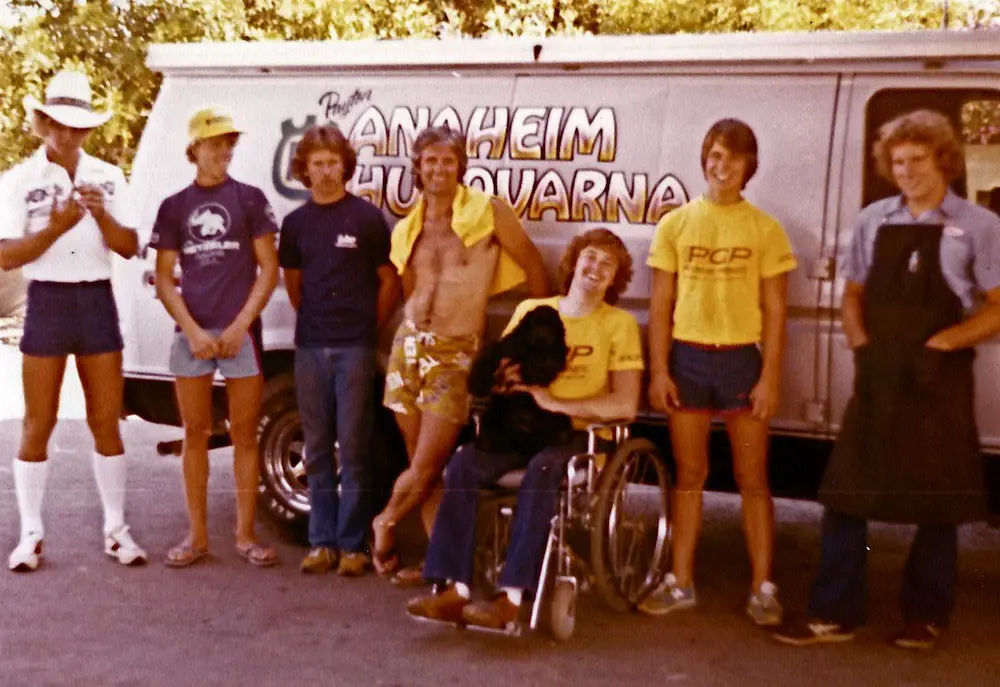 Before Pro Circuit was a household name, these were the shop rats from 1979. (From left to right) Bill Keefe, Lance Sallis, Steve Wiseman, Jody Weisel, Mitch Payton (with CR the cocker spaniel), Mike Monaghan (in the rare PCP T-shirt) and Steve Ballmer. The photo was shot by a very young Adam Duckworth.
Before Pro Circuit was a household name, these were the shop rats from 1979. (From left to right) Bill Keefe, Lance Sallis, Steve Wiseman, Jody Weisel, Mitch Payton (with CR the cocker spaniel), Mike Monaghan (in the rare PCP T-shirt) and Steve Ballmer. The photo was shot by a very young Adam Duckworth.
When I first met Mitch Payton 40 years ago he was fresh out of rehab from a paralyzing desert racing accident. He was a 17-year-old kid with a Husqvarna shop (that was located in an old Laundromat in Anaheim). He didn’t have two pennies to rub together, but he had the drive to be the best. I agreed to do an MXA test on the first motocross bike that he had built. It was a 1979 Husqvarna CR125. At the time, I was the only person in the motorcycle industry who knew who Mitch Payton was…it didn’t take long before everyone knew him.
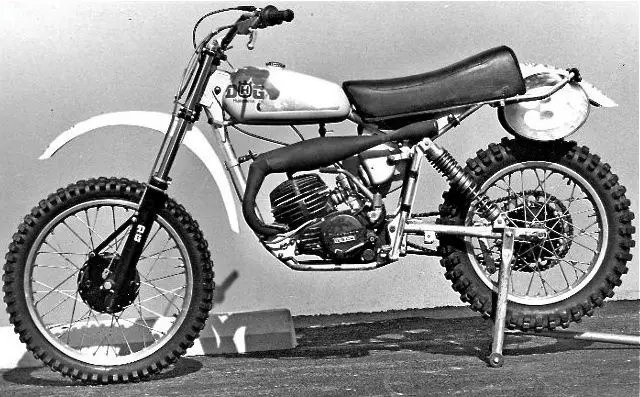
1979 Pro Circuit Husqvarna CR125.
I met Mitch Payton in the usual way. I was at Saddleback Park testing a 1979 Yamaha YZ400G when I heard a loud explosion. I thought a bomb had gone off! Instead it was the engine on Mitch Payton’s Husqvarna CR125. I had never heard a bike blow up like that, so I walked across the pits to see what had happened. That is when I first met Mitch…and that day symbolized everything that is Mitch Payton today. He couldn’t just catch a ring in a port or seize quietly. He had to have shrapnel, smoke and pyrotechnics.

Mitch Payton 1981.
Mitch believed that If it was worth doing right, it was worth doing wrong….as many times as it took to get it right. I was intrigued by the idea of a fast Husqvarna 125. “Fast” and “Husqvarna 125” didn’t belong in the same sentence…and even though this one had the lifespan of a gypsy moth…I told Mitch that if he ever got it back together again, I’d like to test it. But, he had to promise me that it wouldn’t blow any of my appendages off.
A few days later I went to his shop in Anaheim…it was in an old drive-through laundromat and had a cast of characters hanging out that thought they were in a Keystone Cops movie. You’d see young shop rats duct taped to office chairs in the parking lot. If you left your truck unguarded they would slip jack stands under the rear wheels so that you would just spin the wheels when you tried to leave. And, there were so many food fights, that it was hard to find a restaurant in Anaheim that didn’t have Mitch’s photo on the wall. It was the best of times.
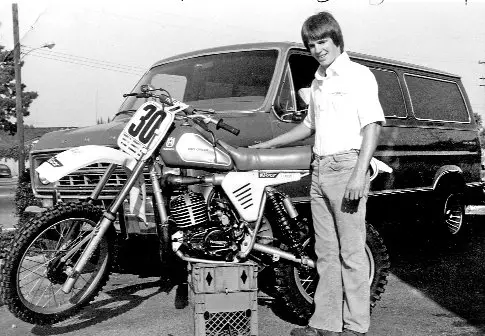
Troy Lee went on from his days as a Team Pro Circuit rider to become a painter, clothing magnate and team owner.
 Troy Lee on the Pro Circuit Husqvarna four-stroke in 1984.
Troy Lee on the Pro Circuit Husqvarna four-stroke in 1984.
I liked it so much that I stayed on to join Mitch’s merry pranksters. Behind the mirth, Mitch was the consummate engine tuner. He was amazingly curious and, most of all, he was willing to push the envelope. There was nothing he wouldn’t try — failure was just part of the learning process. Once in the race shop there were 32 Kawasaki KX125 pipes laid out on the floor. “Are you cleaning out old inventory,” I asked him. “Nope, those are the pipes we have already tested for this coming season,” he said. It was only November.
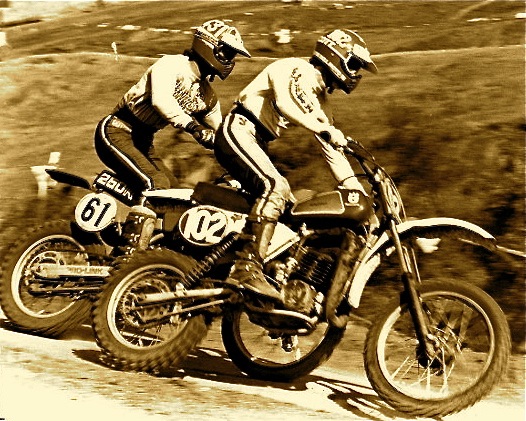
Today, Bill Keefe (61) is the General Manager of Troy Lee Designs and Mike Monaghan (102) is still racing at Glen Helen.
As Pro Circuit grew I had many long talks with Mitch about the motorcycle business. I broke it to him gently that he would never get rich making parts for Husky 125s — even if all 24 people who owned one bought a pipe. I convinced him to stop printing T-shirts that had “Pro Circuit Products” turned into the acronym PCP. I suggested that perhaps he should make products for the more popular bikes. He said that he loved the challenge of making “slow bikes fast” and that “slow bikes needed more help.” I told him that people didn’t buy slow bikes — and that he should concentrate on making good bikes better, not bad bikes good.
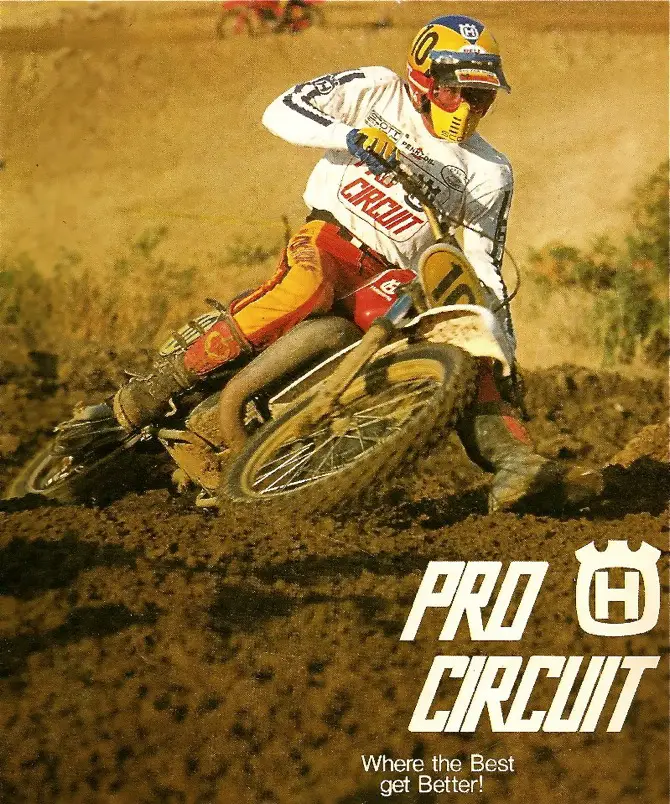
Jeff Jennings on the cover of the first Pro Circuit catalog.
The zany cast of characters stuck with Mitch as he moved from the laundromat to a new industrial building to an even bigger shop and eventually to his current Taj Mahal on the 91 Freeway in Corona, California. It was for the most part a family affair — and I spend most of my Thanksgivings during the 1980s at Mitch’s house with his mom, dad and brother Jimmy. (Mitch and I watched so many “Twilight Zone” marathons that I can still do the dialogue from the “To Serve Man” episode by heart).
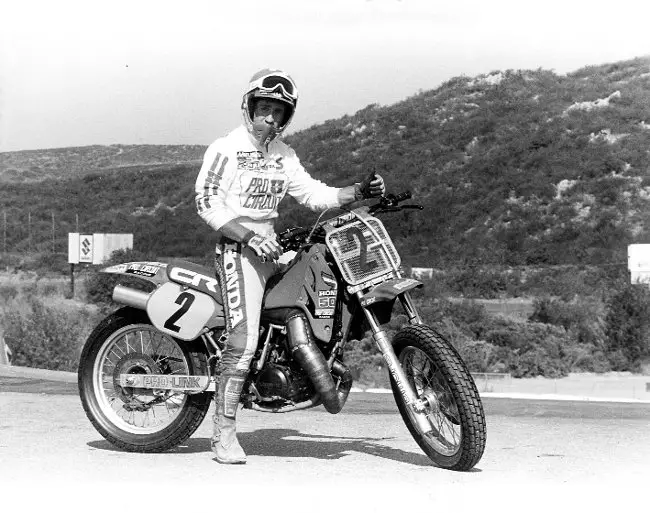
The late Danny “Magoo” Chandler raced for Mitch at the ABC-TV Superbikers.
In this sport you can get a ton of credit for doing something adequately — just by doing it over and over. Need proof? You have race teams that haven’t won a championship in years, but they hire the same riders, mechanics and team managers and get the same old results. You have manufacturers who have won every championship, but they couldn’t sell a motorcycle if they attached a government stimulus check to the handlebars. You have team managers who have mismanaged their teams, hired the wrong personnel and acted like racing was their personal fiefdom, but they keep their jobs while the talented go elsewhere. You have the AMA, who sold the most valuable racing properties in the world because they didn’t like having their name dragged through the mud every time the incompetent managers they hired messed up — and then….they sold the AMA name so that they would be to blame in perpetuity. You have lots of hangers-on who get credit for something, even though they do nothing.
Then, in a totally opposite direction, you have Mitch Payton, who would rather blow up engines in the pursuit of excellence than build something that was merely adequate. I knew that the first day I met him — the world knows it now.
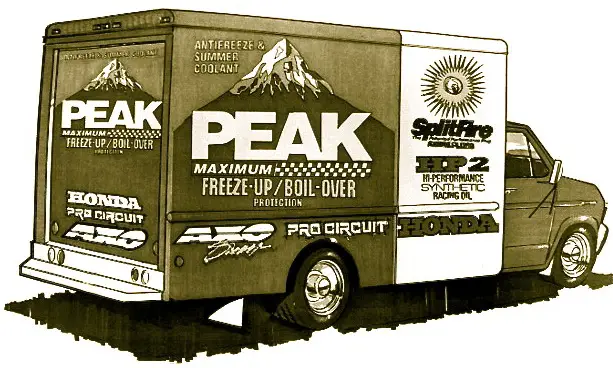
Original Team Peak Honda sponsorship proposal drawing.
It wasn’t easy to go from spinal injury rehab to the top of the motocross world. After Mitch’s injury, he bought a rundown Husqvarna shop with the help of this parents, Norma and Jim. Mitch changed the name of the shop to Anaheim Husqvarna and collected a motley crew of pals that included Steve Wiseman, Bones Bacon, Clark Jones, Steve Ballmer, Bill Keefe, Troy Lee and others to hang out there. The first thing Mitch did when he got up to speed was to form a Husqvarna race team, originally with 125 rider Craig Dale, but eventually Mitch’s squad would include Jeff Jennings, Tony DiStefano, David Gerig, Andy Jefferson, Mike Tripes, Doug Dubach, Tommy Croft, plus Troy Lee, Mike Monaghan, Bill Keefe, Ernie Becker, Jimmy Perry and more. Over the last 40 years virtually ever big name rider has raced for Pro Circuit — or raced with Pro Circuit parts on their works bikes.
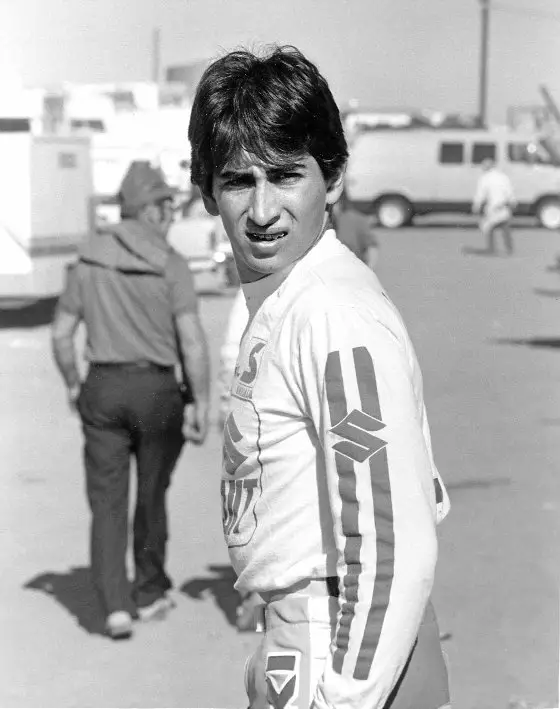
Today, Doug Dubach owns his own exhaust pipe company — DR.D, but back in the day he raced for Mitch.
The first thing Mitch did when he got up to speed was to form a Husqvarna race team, originally with 125 rider Craig Dale, but eventually Mitch’s squad would include Jeff Jennings, Tony DiStefano, David Gerig, Andy Jefferson, Mike Tripes, Doug Dubach, Tommy Croft, plus Troy Lee, Mike Monaghan, Bill Keefe, Ernie Becker, Jimmy Perry and more. Over the last 33 years virtually ever big name rider has raced for Pro Circuit — or raced with Pro Circuit parts on their works bikes.
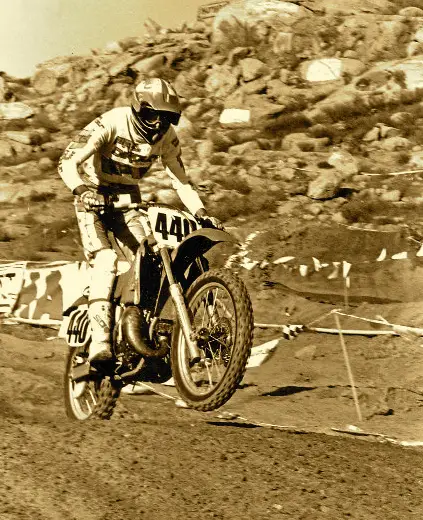
Today, Bones Bacon is Pro Circuit’s suspension expert.
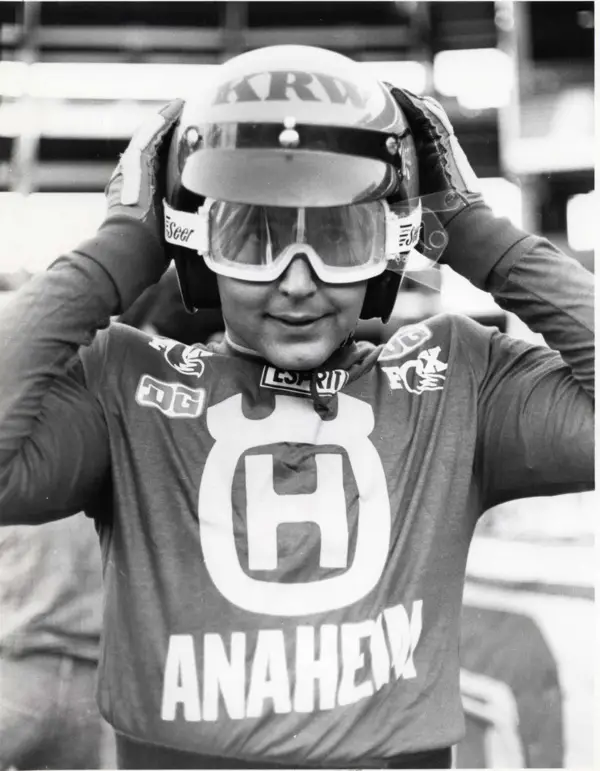
Tony DiStefano raced Husqvarnas for Mitch.
Early on, when he was still running Anaheim Husqvarna, Mitch expanded into a full line of exhaust pipes under the name Pro Circuit. The success of Mitch’s Yamaha, Honda, Kawasaki and Suzuki pipes (added to his prowess with a porting tool) made him the go-to-guy for aspiring AMA National and Supercross privateers).

Mitch Payton, mechanic Buddy Morgan and Steve Lamson in 1991.

Andy Jefferson’s Supercross Husky 250 CR.
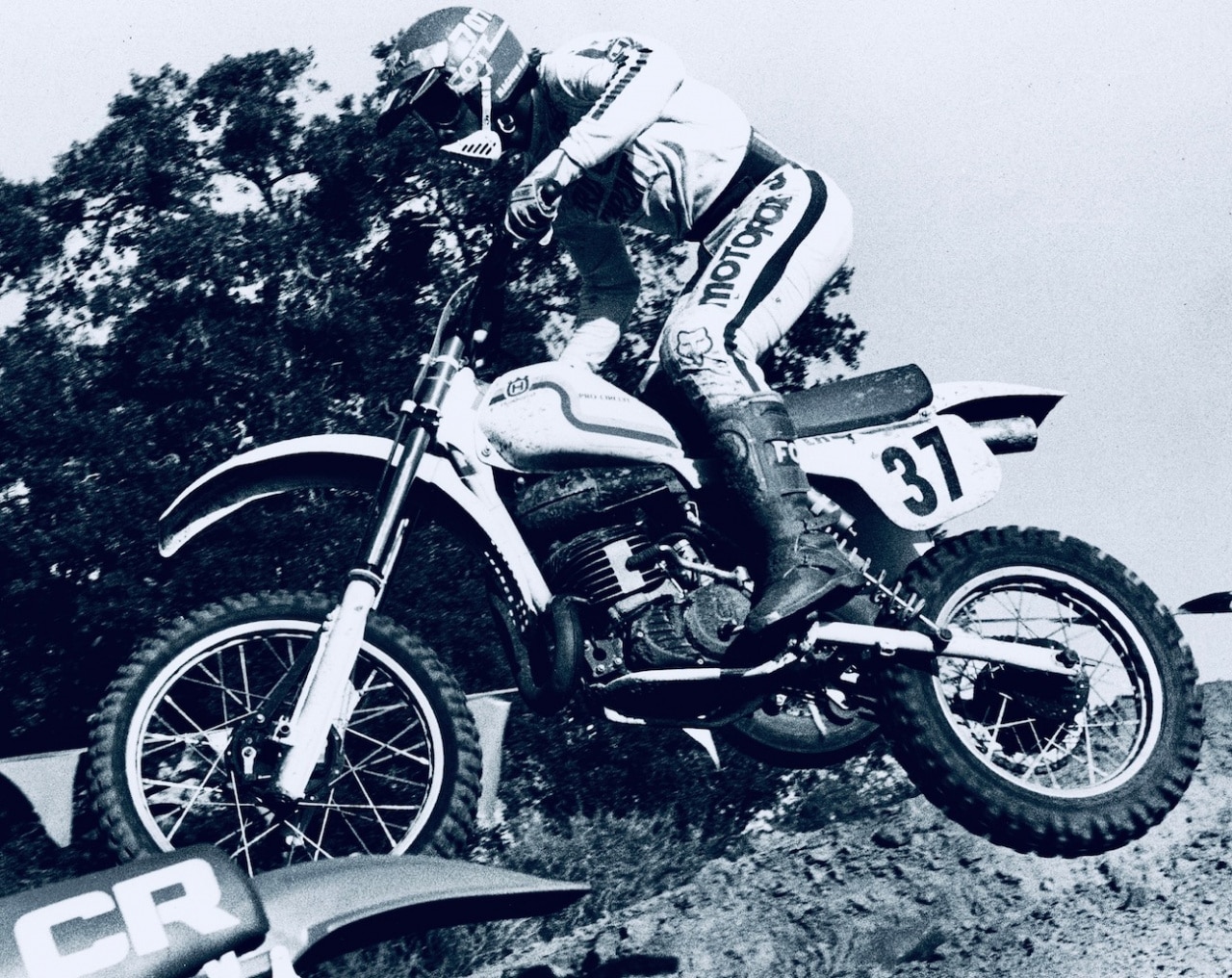 Today, Andy Jefferson works at Husqvarna North America.
Today, Andy Jefferson works at Husqvarna North America.
Pro Circuit pipes were in such demand that the factory teams started running them on their works bikes and Mitch soon added Bob Hannah, Ricky Johnson, Jeff Ward and Jeff Stanton to his fan base. In late 1990, Team Honda’s Roger DeCoster called and asked if Mitch would run Honda’s official 125 team. This was a giant step forward for privateer teams. It formed the foundation for the future of the sport.
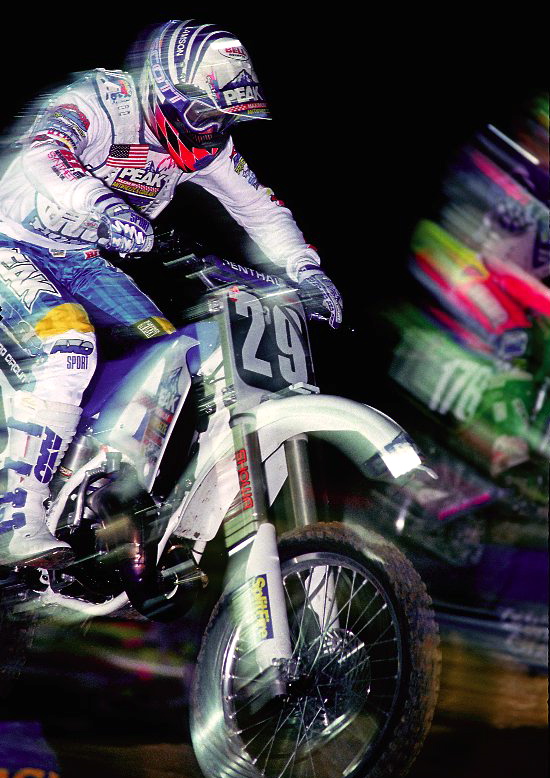
Steve Lamson.
Team Peak Honda signed unheralded Kawasaki rider Jeremy McGrath, Steve Lamson, Jeromy Buehl and Brian Swink for the 1991 season. With its team uniforms, blue and white CR125s and creative ideas, Team Peak won both the 125 West with McGrath and 125 East with Swink.
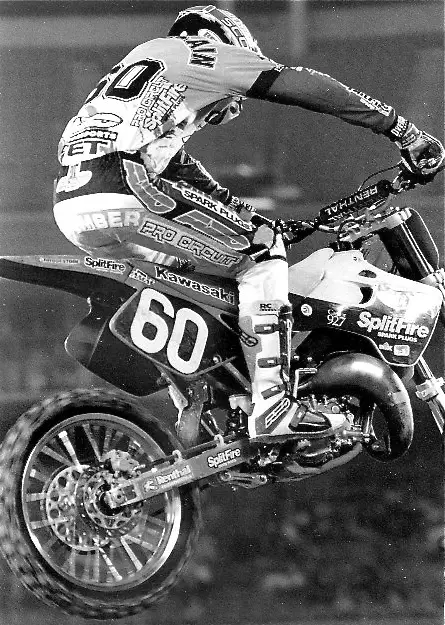
Mike Chamberlain.
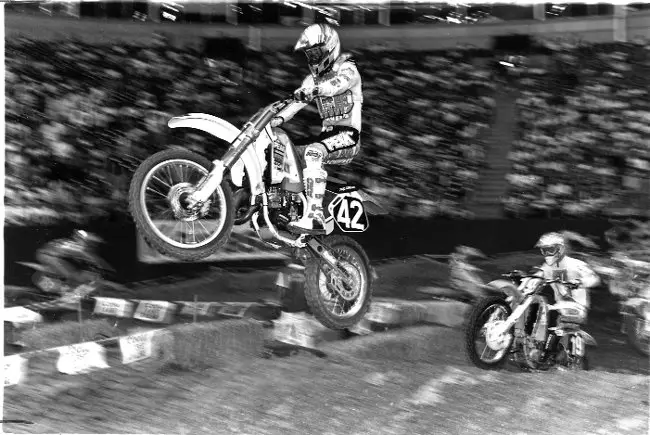
Brian Swink.

Jimmy Gaddis.
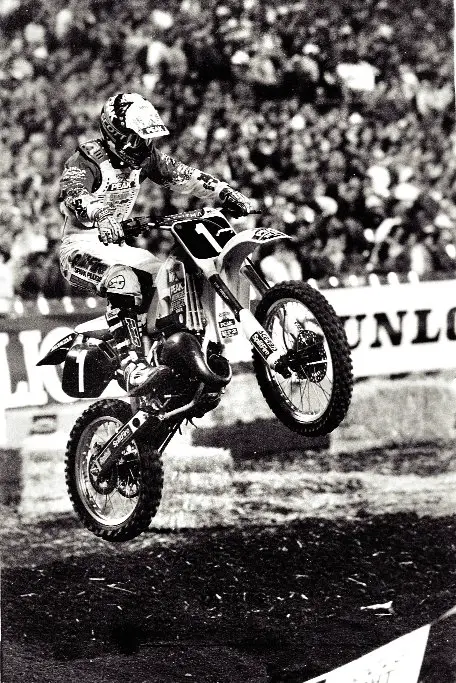
Jeremy McGrath.

Pedro Gonzalez.
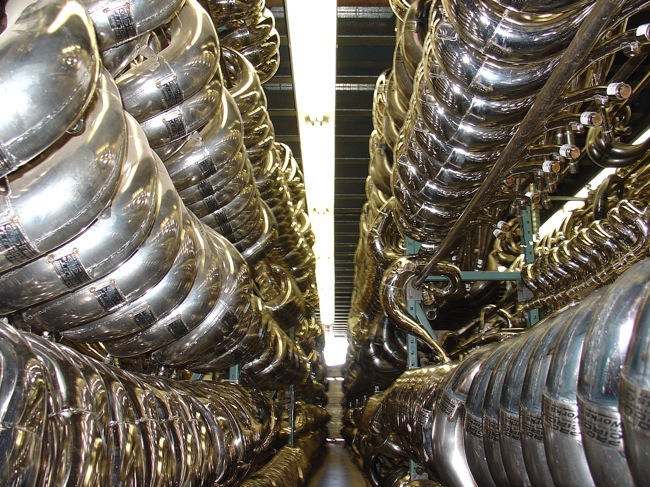
Got pipes?

Jeromy Buehl.
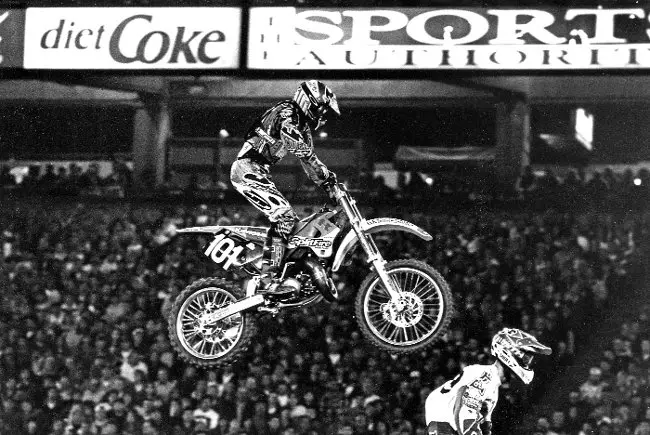
Mickael Pichon.
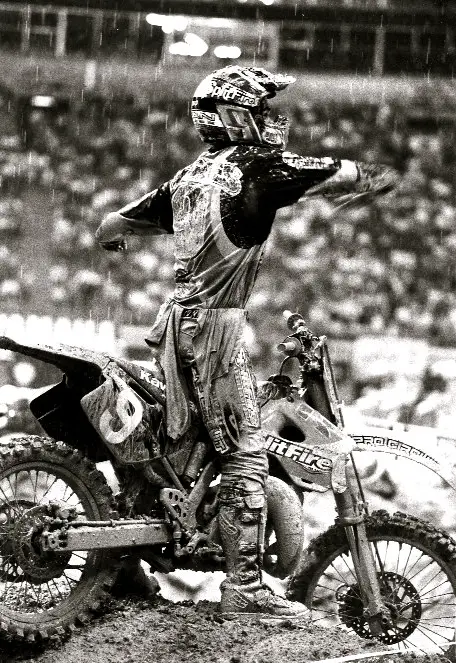
Ryan Hughes.

Nick Wey (23), Scott Sheak (26) and Billy Payne (195).
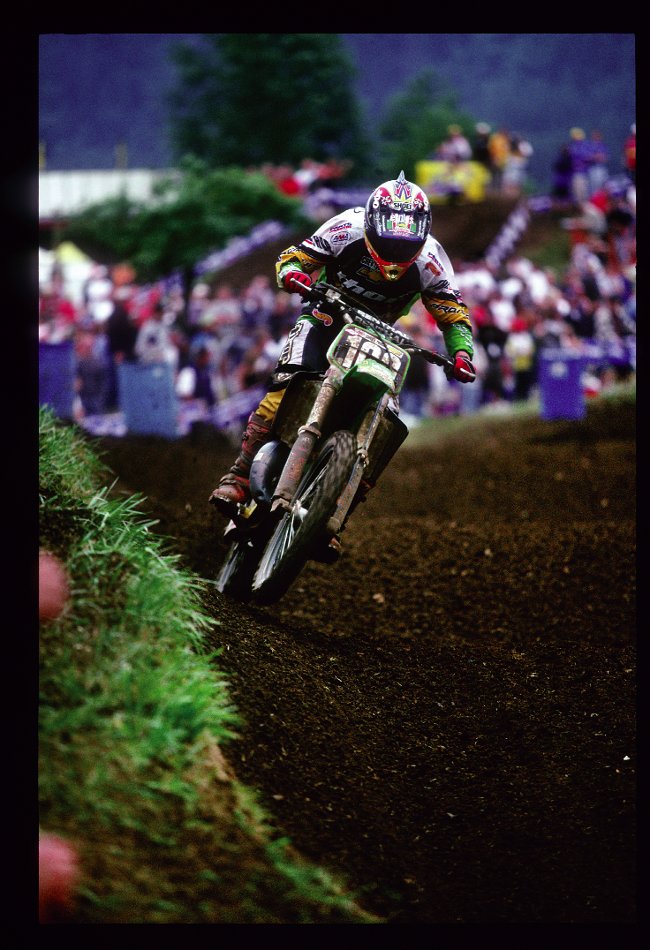
Mike Brown.
With each season, Honda cut back its support to Mitch’s team, even though he was winning races for them. Eventually, Kawasaki made Mitch an offer that he couldn’t refuse. Mitch put Team Peak Honda out to pasture and started Team SplitFire Kawasaki (SplitFire belonged to Peak Antifreeze).
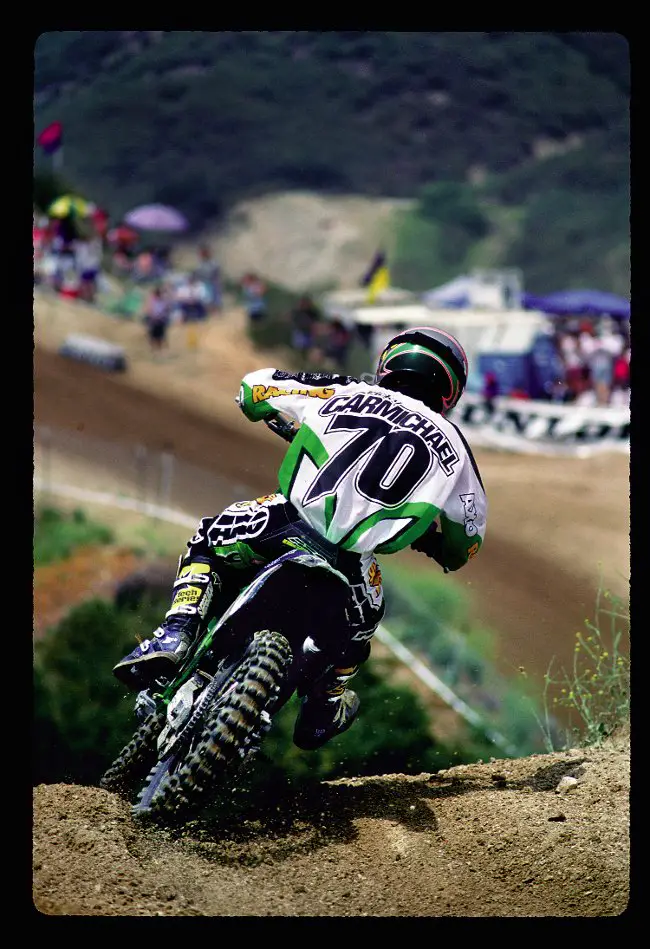
Ricky Carmichael.
Pro Circuit’s efforts spawned a new generation of private teams, not the least of which was Honda of Troy. Today’s teams, like Star Racing Yamaha, Rockstar Husqvarna, Geico Honda and Joe Gibbs Racing are following in the footsteps that Mitch Payton left in the sand.
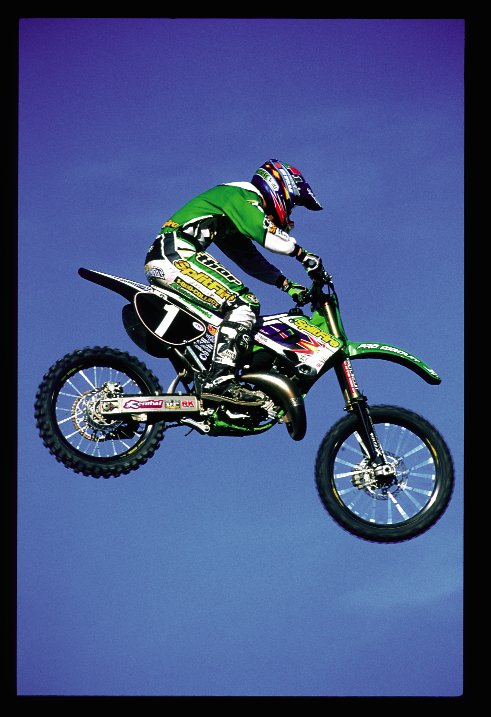
Nathan Ramsey.
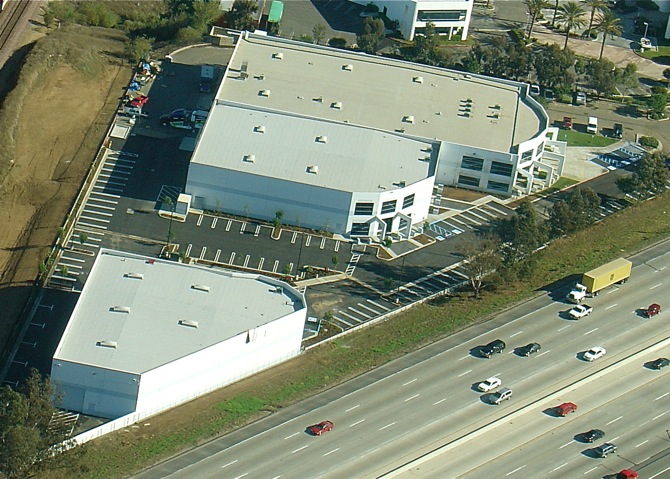
The Pro Circuit compound on the 91 Freeway.

Ben Townley.
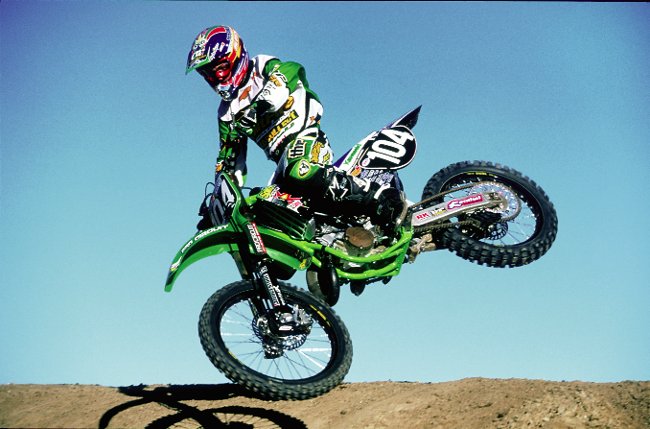
Shae Bentley.
The marriage between Pro Circuit and Kawasaki has produced the most successful race team in motocross history. Pro Circuit has won over 200 AMA events and 26 AMA Supercross and National Championships. In no small part the success belongs to Mitch’s inspired tuning and his keen eye for talent.
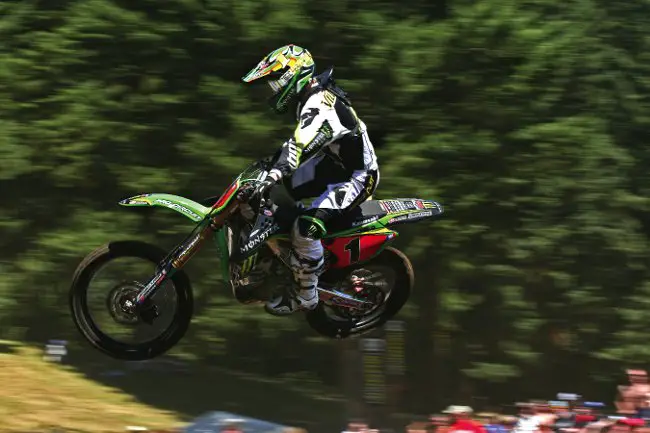
Ryan Villopoto.
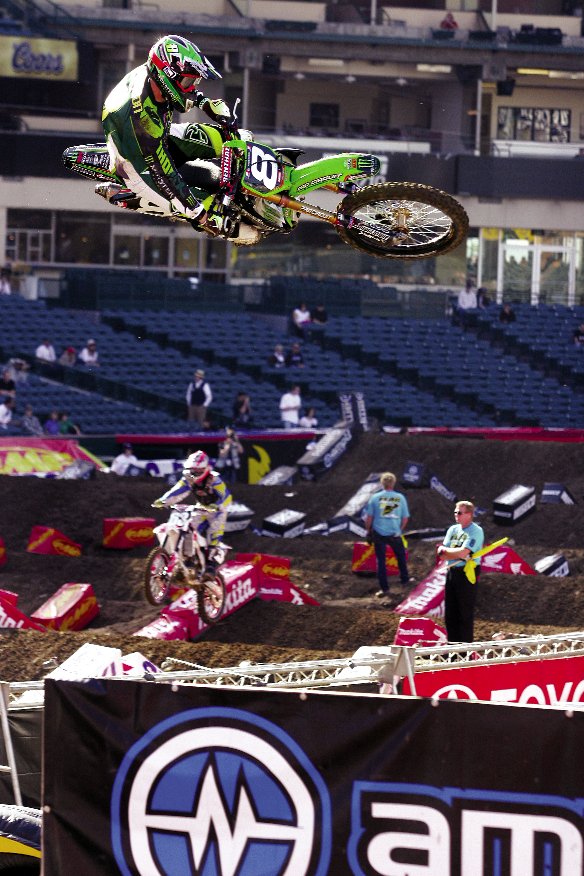
Grant Langston.
Not even Mitch Payton can name every rider who raced for his teams since 1979, but everyone knows the career highlights of the young kids he mentored or the old soldiers he rehabilitated. Just being a part of the Pro Circuit team raises the game of every rider. Riders will take less money to race for Pro Circuit because they believe that the quality of the bikes and the team’s effort will earn them more in the long run than any short-term gain.

Jake Weimer.
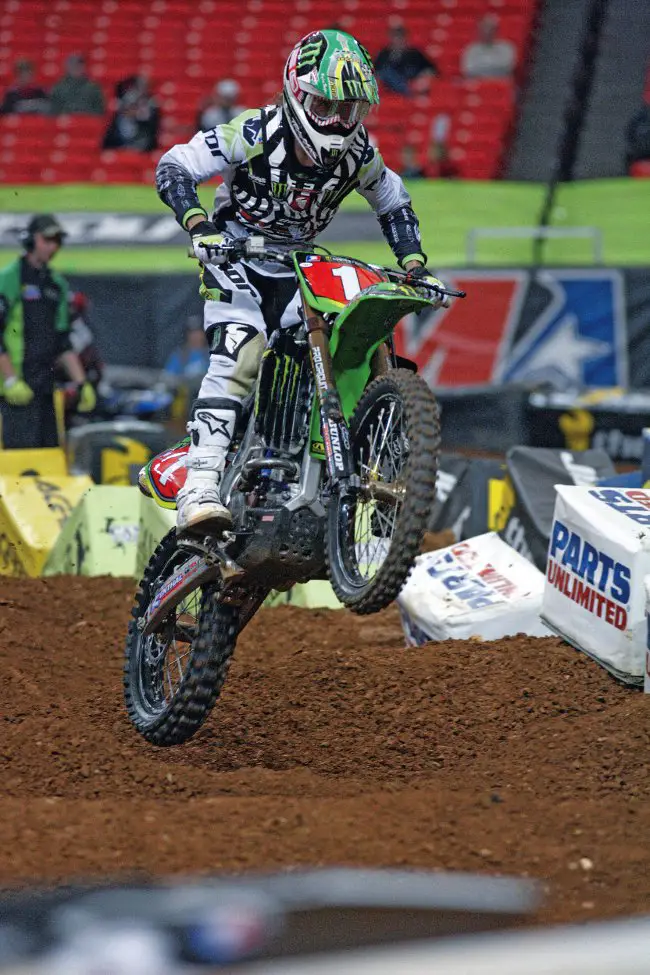
Christophe Pourcel.
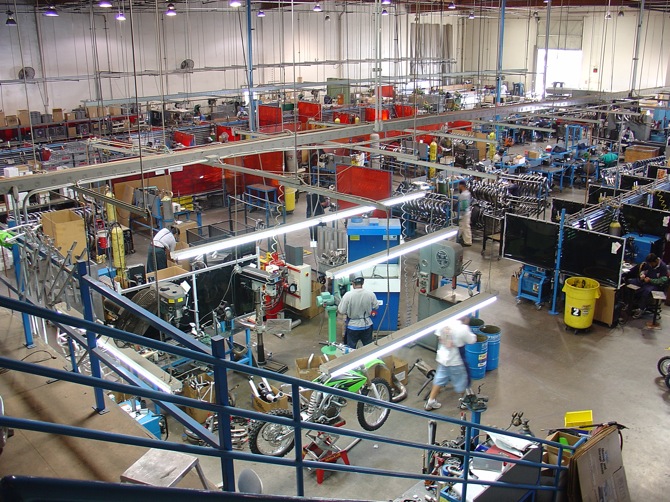
Pro Circuit’s exhaust pipe factory in Corona, California.
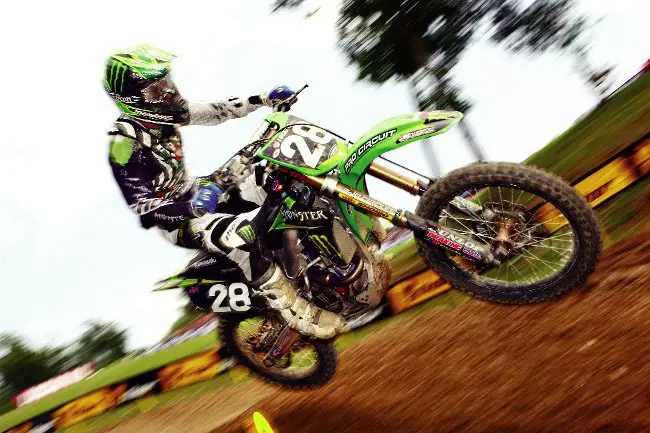
Tyla Rattray.

Blake Baggett.
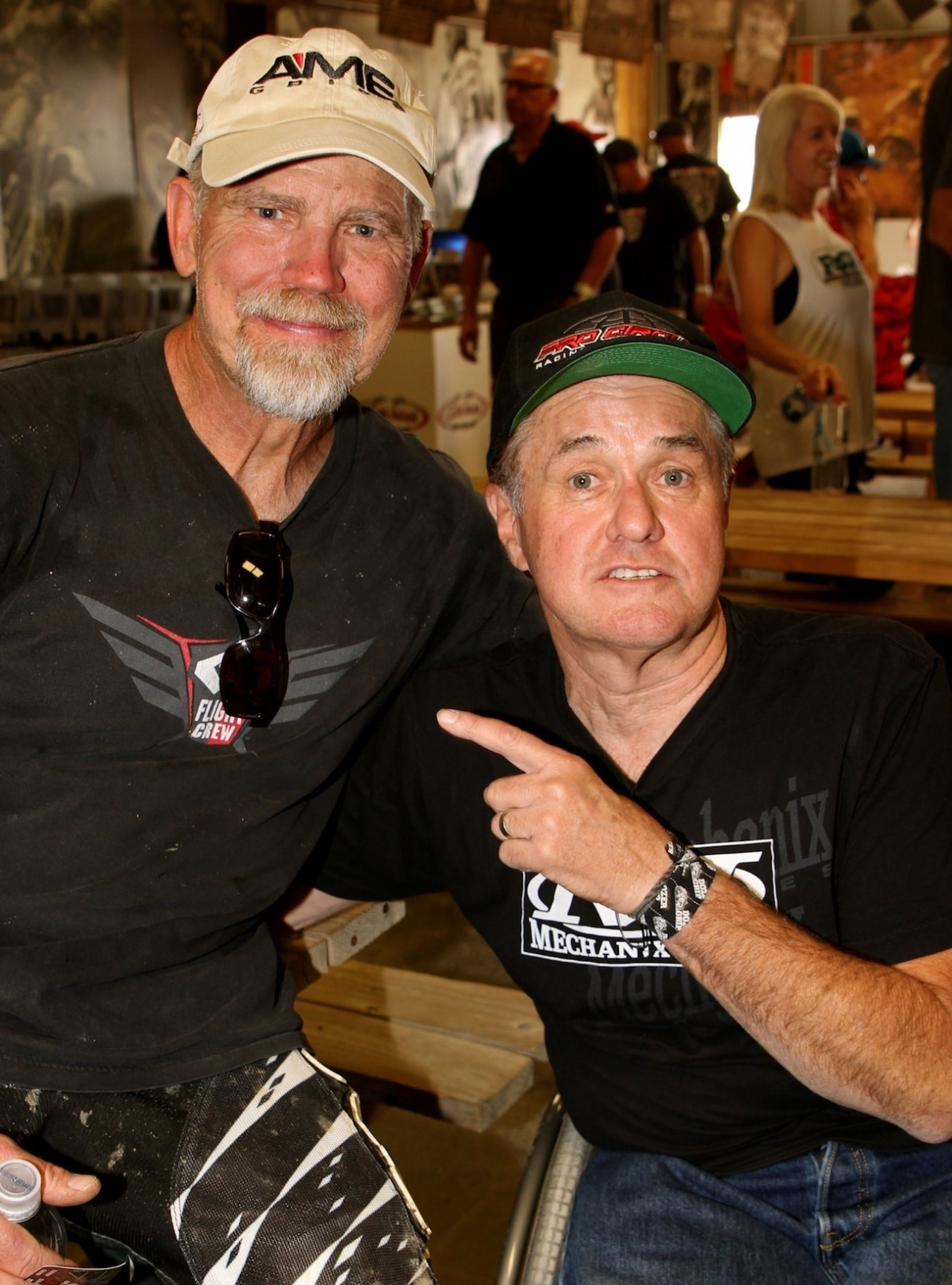 Mitch with another desert ace—Bob Rutten.
Mitch with another desert ace—Bob Rutten.
Mitch has a legendary reputation as a team manager who won’t waste time with riders who aren’t serious. If he hires a rider it is because he sees something in them. Mitch has taken troubled riders and turned them into winners (and he hopes that he has also turned them into better people).
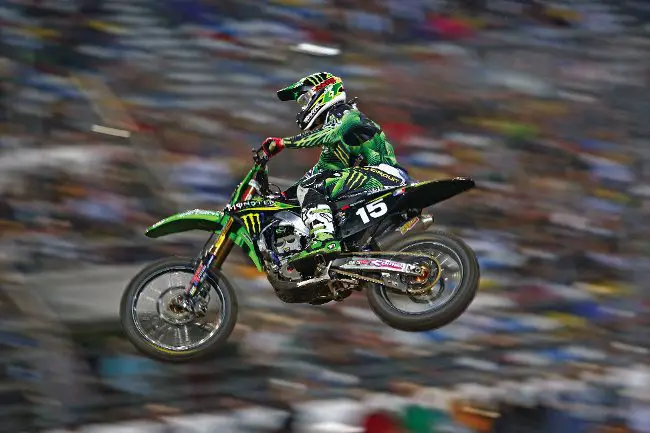
Dean Wilson.
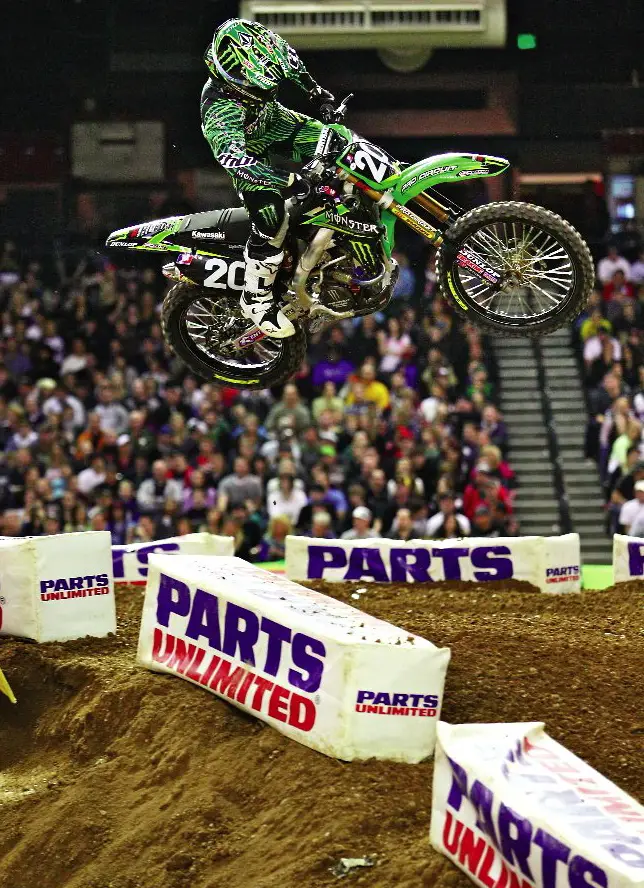
Broc Tickle.
Dean Wilson, Blake Baggett, Broc Tickle, Tyla Rattray, Josh Hansen, Justin Hill, Martin Davalos, Adam Cianciarulo, Arnaud Tonus, Joey Savatgy, Tyler Bowers and Chris Alldredge have all ridden for Mitch.
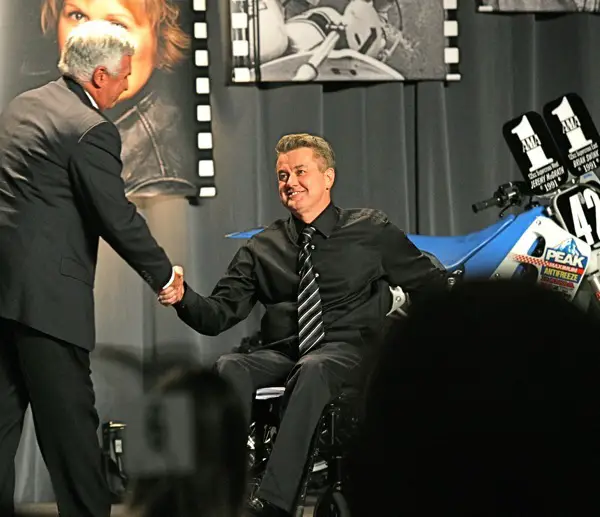
Jody and Mitch at the 2010 AMA Hall of Fame ceremony.
The motorcycle industry showed its respect for Mitch Payton when it inducted him into the AMA Hall of Fame in 2010. It was a star studded night in Las Vegas and everyone who was anyone came out to honor the sport’s greatest tuner, team manager, mentor and team owner.
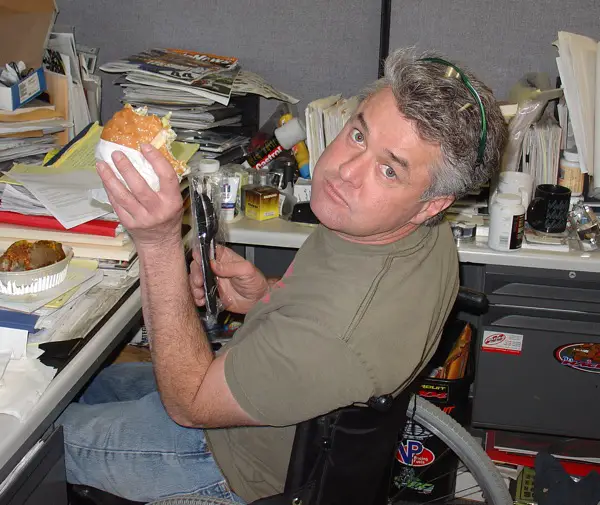
If you’d like the jet-set lifestyle of a team owner, you need to know that Mitch eats lunch at his desk so that he can keep working.
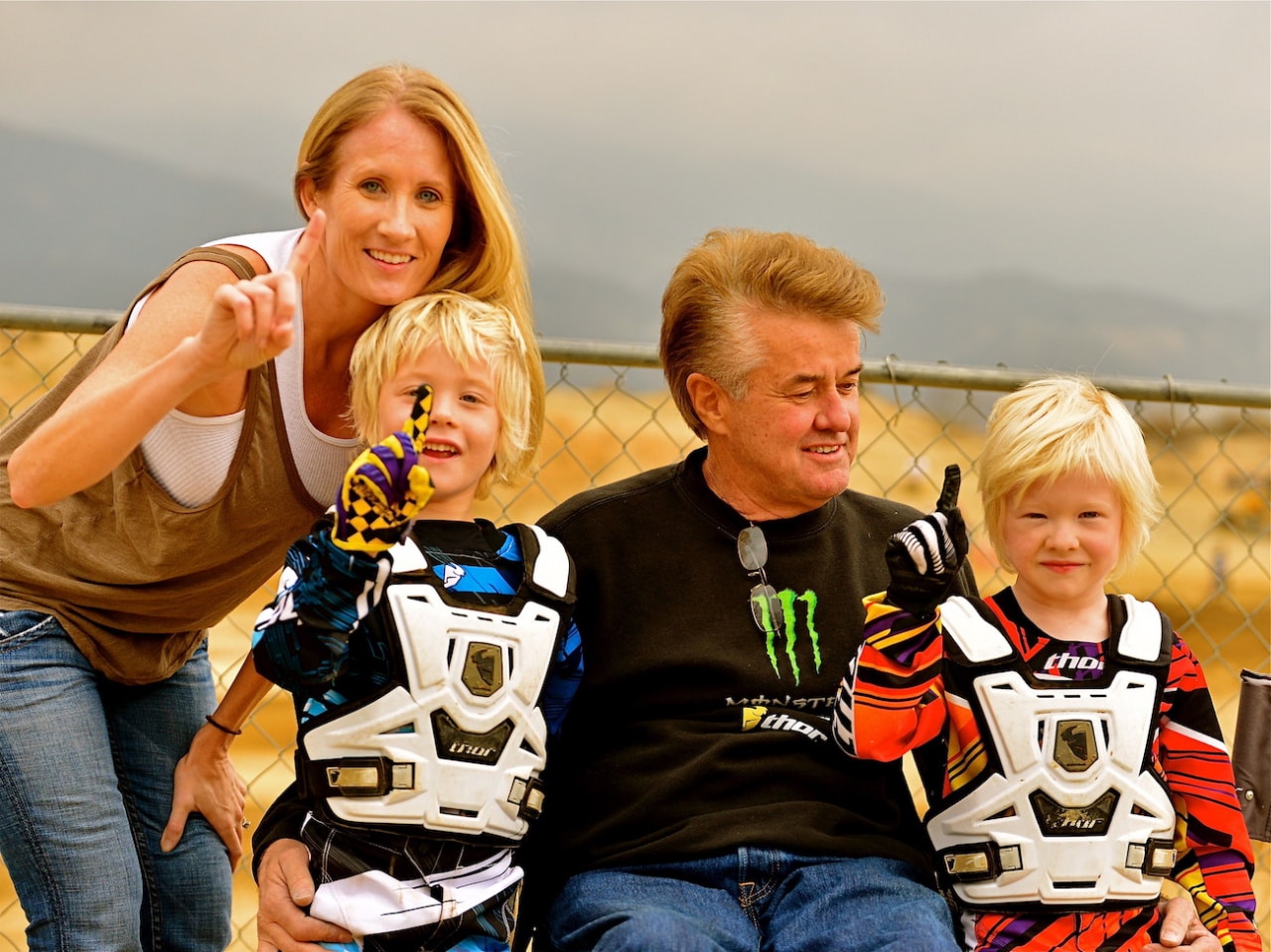 The Payton family at the races.
The Payton family at the races.
So, the next time you hear someone say how Monster Energy Pro Circuit Kawasaki only wins because they have deep pockets, you’ll know that it isn’t true. They don’t have deep pockets—they earned them one port job at a time. Pro Circuit’s teams, riders and machines have won over 200 AMA Supercross and National events. And they did it the old fashioned way, by working their way up from low man on the totem pole. Pro Circuit’s success is not oppression of the have-nots, it’s proof positive that the underdog can be a winner if he never gives up.

This is the greatest tuner in motocross history — Mitch Payton.


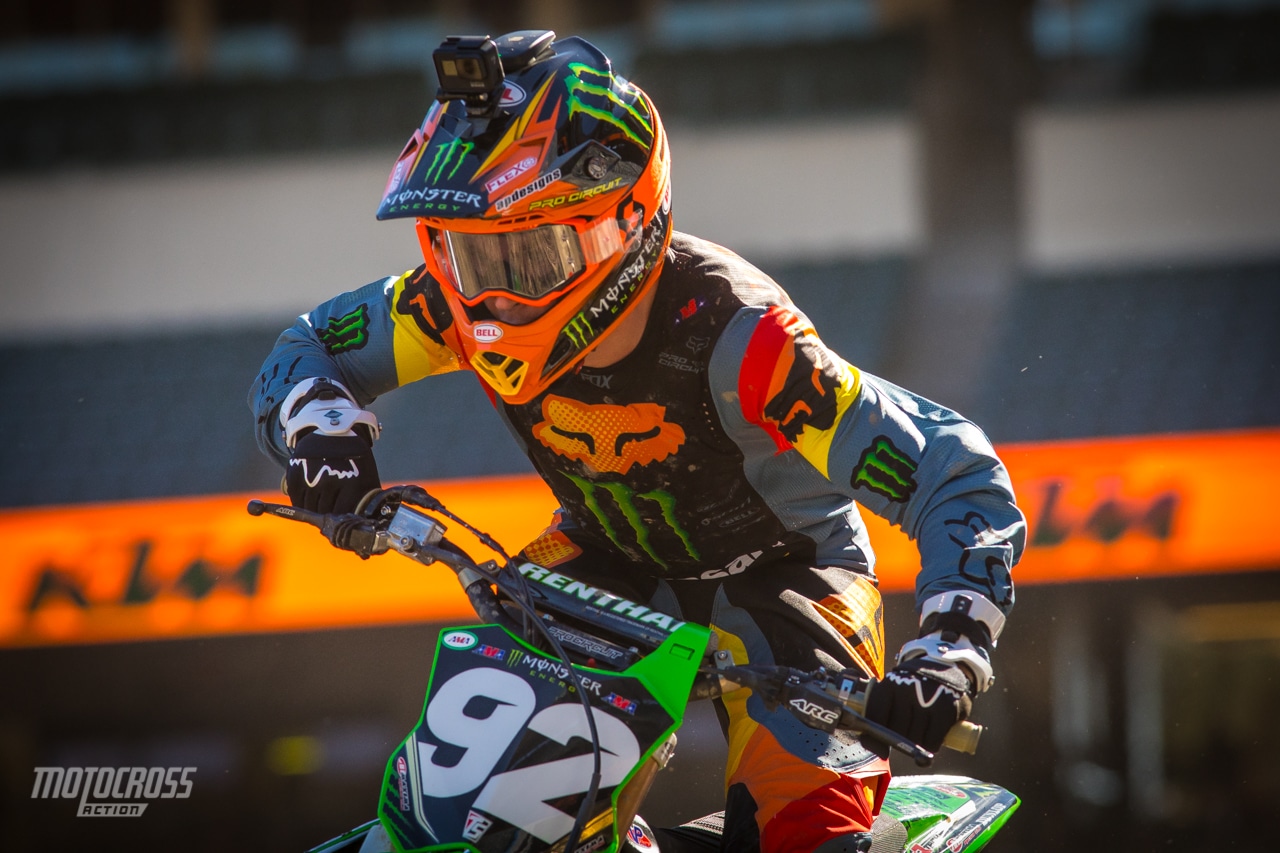
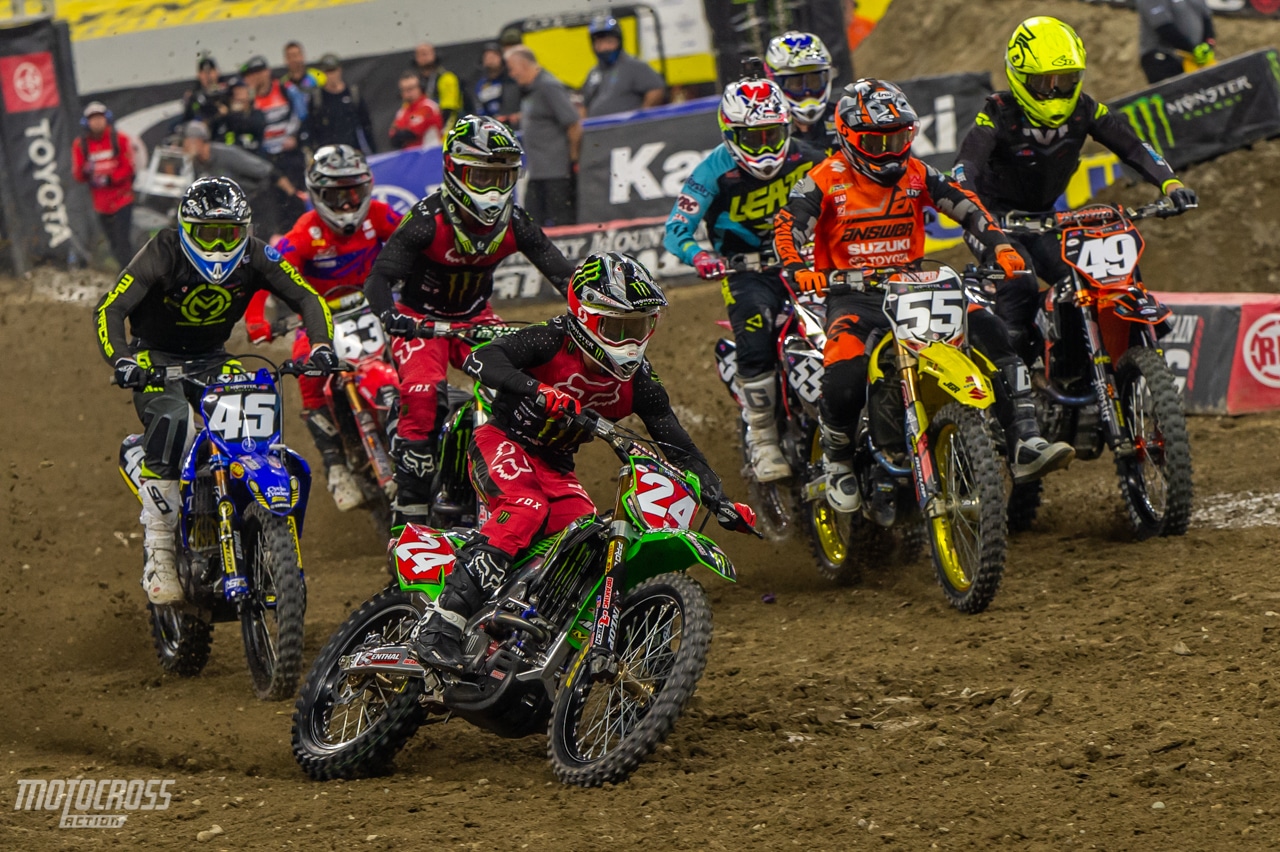



Comments are closed.